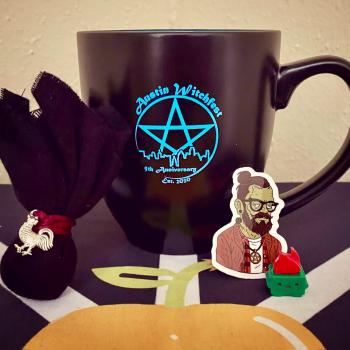 Daniel Harrell is Senior Pastor at Colonial Church in Edina, Minnesota, and author of Nature's Witness: How Evolution Can Inspire Faith:
Daniel Harrell is Senior Pastor at Colonial Church in Edina, Minnesota, and author of Nature's Witness: How Evolution Can Inspire Faith:
Somehow evangelistic and social justice ministries have to become viewed as part and parcel of the same thing. Evangelism explains compassion; compassion substantiates evangelism. James 2:14-17 gets at this:
What good is it, my brothers, if a man claims to have faith but has no deeds. Can such faith save him? Suppose a brother or sister is without clothes and daily food. If one of you says to him, "Go, I wish you well; keep warm and well fed," but does nothing about his physical needs, what good is it? In the same way, faith by itself, if it is not accompanied by action, is dead.
It is because we believe in Jesus that we act and serve like Jesus.
 Brian McLaren is founding pastor of Cedar Ridge Community Church in Spencerville, Maryland, and a prominent speaker, author, and activist. His answer is drawn from the interview he gave the Evangelical Portal:
Brian McLaren is founding pastor of Cedar Ridge Community Church in Spencerville, Maryland, and a prominent speaker, author, and activist. His answer is drawn from the interview he gave the Evangelical Portal:
In my understanding, the two are integral. One is inherent in the other. To say God loves the world, but not to show that love in practical ways, that would seem to me to undermine the proclamation. And to show God's love in material ways but not to put it into words, that doesn't make a lot of sense to me either. Because I see the gospel as Jesus' message that the kingdom of God is at hand, and because I see the kingdom of God as good news for all creation -- not just the souls of the elect -- I don't put social and spiritual into separate categories. But I understand how, for many good evangelicals, the world is divided into those categories, so they'll express things in this way.
 Kelly Monroe-Kullberg is the author of Finding God at Harvard, a campus minister with InterVarsity, and the founder of the Veritas Forum.
Kelly Monroe-Kullberg is the author of Finding God at Harvard, a campus minister with InterVarsity, and the founder of the Veritas Forum.
Jesus so often spoke of his Father's notice of the least, the last, and the lost. And so the Church's care for the poor and oppressed is not news to any student of history. God is redeeming His disciples and we are invited to join Him as we first receive, and then extend, mercy and kindness. As we co-create instances of lived art and beauty. As we speak for those who cannot speak. As we reveal the glory of God in all fields. As we work to free girls from brothels. As we fish and help men and women learn to fish as well as, so to speak, providing access to a rod, reel, and the lake. We are made with creativity and dignity, hands and minds, for play and work and fruitfulness. (Adam and Eve stewarded the garden before the Fall, and toiled in the garden after.)
Unfortunately, the words "social justice" have been used for about any cause, interest, or behavior. I can't crack the code. The "rights" of traitors and terrorists. The "rights" of brothel owners. The "rights" of abortionists and perhaps soon pedophiles. My "rights," whatever those may be. The current use of "social justice" seems to have much tele-prompted political leverage, but little correspondence with Biblical justice and care for the actual poor and oppressed in real, wise, and sustainable ways.
The Church is now divided by political rhetoric and gimmicks. This should grieve us. Let's contend again for Christian unity around the actual Gospel of the mercy and justice of God. Liberal Christians complain that the Christian "right" turned Jesus into a Republican. Is making Jesus a Democrat the solution? The Kingdom transcends all political schemes. Let's hope we can find our center not in the false promises of Caesar and his advisers, but in the true King and his word.
In the hope of regathering Christian unity around the Gospel, I'm asking liberal Christians to please stop reducing and characterizing more conservative brothers and sisters as repressed souls who care only about heterosexual marriage and babies being born -- though, given the unfolding tragedies of the sexual revolution, these, I believe, are on God's heart. The Gospel is about life, the abundant life that Christ offers us now. God's wisdom and precepts guide us into abundant life. Mere Christians care about what Jesus did on the cross and in the tomb and then attempt to live and advance a culture of life.
So, over the centuries, believers have cared for the hungry, defended the widow and orphan, fought the persecution of the Jews under Hitler, defended human rights in the Sudan and Uganda, China and Russia. I deeply respect the salvation-centered work (both the message and works of the Gospel) of the Salvation Army, the early YMCA, Sisters of Charity, Ziegenbalg in India, Wilberforce in England, Bonhoeffer in Germany. These were Gospel-centered believers, not political engineers. Actual justice doesn't happen through political coercion. Radical justice and mercy come from the love of God that enlivens our hearts with goodness and truth, mercy and justice, from the inside out. That Gospel, alone, remains the hope of the world.
[For Monroe-Kullberg's full response, go here.]




